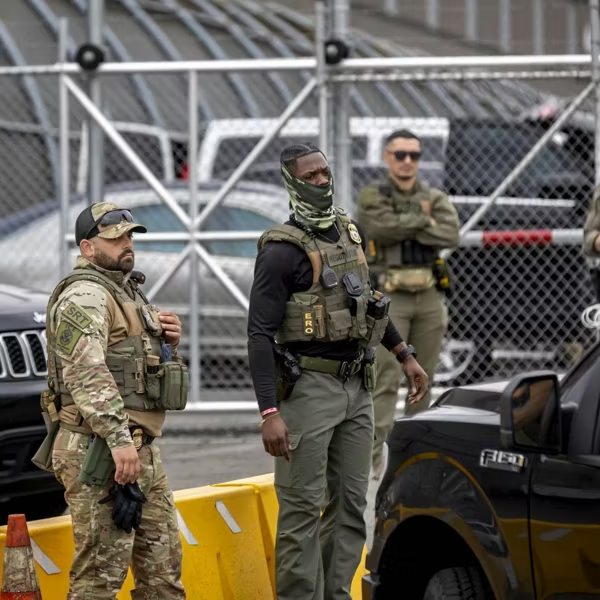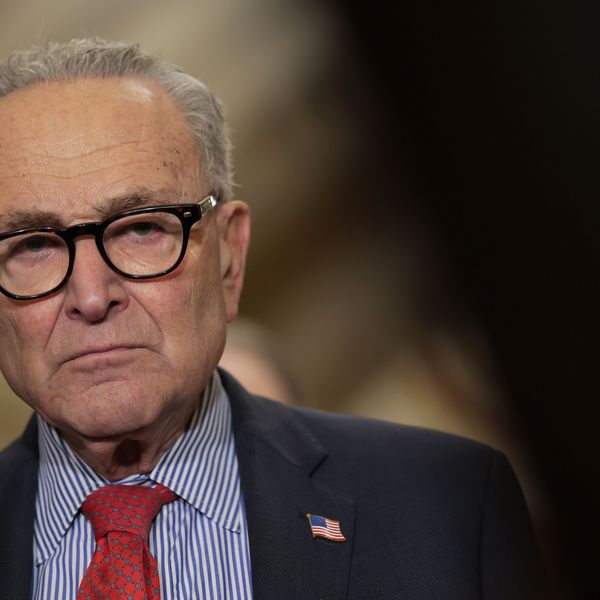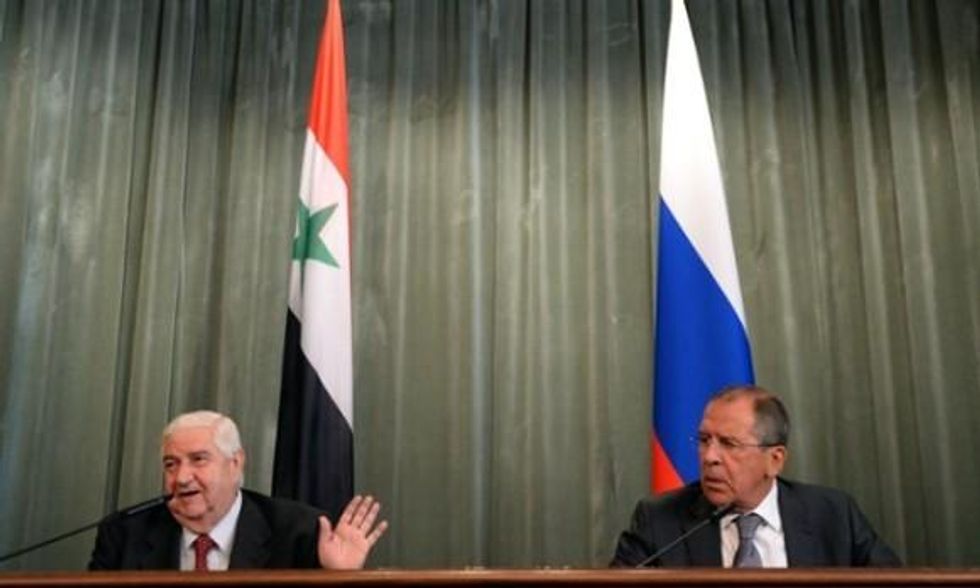Watching Syrian FM Walid Muallem on the TV news announcing his country's acceptance of Russia's plan to consign all Syria's CW stockpile to international control and then destruction was an amazingly powerful sight. With this one stroke, all the air went out of the campaign Pres. Obama has been ramping up, to win public and Congressional support for a U.S. "punitive" military attack against
Syria. (Shortly after Mouallem's announcement, the Democratic leader of the senate, Harry Reid, withdrew the war resolution from consideration there...)
As of now, Moscow deal looks like win-win-win all round for everyone with legitimate interests in the Syria situation:
- First of all and most importantly, it is a win for the vast majority of the Syrian people- those who are desperate for an end to the conflict and want nothing more than to go home and see their country's war-ravaged fabric (physical and social) repaired. Under what political circumstances? Still to be determined. But at least they have a much better chance of this happening now than if U.S. Cruise missiles had been used to further stir up the stew of their country's conflict.
- It's a win for both Pres. Obama and the American people. The American people had shown, overwhelmingly, that they (we) neither wanted nor needed this war. But Obama was still kind of hoisted on the self-created petard of his various pronouncements about Syria's CW- not only the various 'Red Lines' statements he made earlier, but also all the recent statements claiming a surety of knowledge about what happened August 21st that has never yet been backed up by the public provision of any evidence. Here in the United States as around the world, there were loud calls for him to present his evidence. He never has. As this made-in-Moscow deal goes forward (which I expect it will), Obama will likely be relieved that he never has to show what, by many accounts, seems to have been a very weak evidentiary hand.
- Meantime, Obama, we, the Syrian people, their neighbors, and the world will all- if the deal goes ahead- have won the significant gain that the Syrian government will have verifiably destroyed its reportedly extensive CW arsenal.
- This is, quite likely, also a 'plus' for the Syrian regime itself. From the time the verified collection and depositing of the regime's official arsenal into international hands takes place, it should be abundantly clear that any subsequent use of CW that occurs in Syria has been undertaken by other parties. Also, keeping good control of the CW arsenal as various parts of the country have fallen out of the regime's hands may well have been a big problem for the regime. Now, many army commanders may welcome being relieved of that task.
- The other big 'plus' of the plan for the regime is that its survival and integrity is, obviously, crucial to the success of the plan. The plan for CW collection- and whatever comes after it in terms of political negotiations- cannot go ahead without the full participation of the Syrian government. The longstanding campaign that Washington has been leading, claiming that "Asad must go before there are any negotiations" has been dealt a severe, likely fatal blow. Asad will have traded, in effect, his longstanding CW arsenal (which has been Syria's main deterrent against the threat posed by Israel's undoubted superiority at the level of conventional, chemical, and nuclear weapons) for a recognized place at the table.
- Another significant winner in this is, of course, Moscow. By pulling this deal out of their hats, Putin and Lavrov have underlined that they, too, are significant players both in the Syrian theater and also (to some extent), on the world scene. Putin is not Yeltsin, as I noted here just a few days ago.
- The deal could well also prove beneficial to the prospects for a long overdue de-escalation of Iranian-American tensions. Since a lot of the mobilization here in the United States for a war on Syria was done in the name of "demonstrating credibility" in the continuing face-off against Iran, the two issues are of course linked... So, since the Syrian face-off now seems potentially amenable to a negotiated resolution- well, why don't we all try the same thing with Iran??
- The Moscow deal is also a real boost for international legitimacy and the rule of law. U.N. Secretary-General Ban Ki-Moon has for many years been a fairly docile ally of Washington. But over recent weeks, even he has become sterner and sterner in his warnings against unilateral U.S. military action. The U.N. team that went into the areas of eastern Damascus that were struck on August 21 was able to get blood and soil samples that the U.S. has never had access to. As in Iraq in 2003, the issue is: Will Washington give the U.N. inspectors the chance to do their job? The U.N. will probably also have a big role in organizing the CW-collection program and the political talks that, I dearly dearly hope, will follow inside Syria. At this point, only the U.N. is capable of performing these tasks. It will be a U.N. in which Russia, China, and many other powers will be pulling their weight- no longer, as so often in the past, one in which Washington calls all the shots. Good.
Who is this deal not good for? I would say, firstly, the Qaeda-linked and other takfiris in Syria, who have been working assiduously since spring 2011 to draw the Americans in, in order to "win" their battles in Syria for them- a gameplan they had pursued with such success in Libya in March 2011. (Has anyone looked at the situation in Libya recently??)
Oh boy, am I glad that we will not be marking the 12th anniversary of 9/11 by seeing a U.S. military attack against Syria that aids the local affiliates of Al-Qaeda there.
The Moscow-Syria deal is probably also not good for the Saudis- more specifically, that dreadful old rogue Prince Bandar, who has worked hard over recent months, alongside the takfiris, to also draw the Americans in to the war in Syria.
The deal is definitely not good for Susan Rice, Samantha Power, or John Kerry. The attempts these three have made to (a) hype the threat in Syria, (b) express certainty where none was warranted, and (c) sell the war to Congress and the American people- let alone that 95% of humankind who are not U.S. citizens!- have been mendacious, ill-informed, and unsuccessful. They have led the president into looking pretty stupid. Should they keep their jobs? I don't know.
Is the deal good or bad for he Israelis? I don't know that, either. Surely, many in Israel will be relieved if the Syrian government's stocks of CW are destroyed. But there are also plenty of people in the Israeli MIC elite who have said they would love to see the Syrian civil war drag on for many years. The rest of the international community must not allow that to happen!
So what now? The first task, of course, will be to organize the internationally-mandated body that will go to Syria to collect the CW. Obviously, Russia will have a big part in that body, but it should also have a strongly credible international flavor to it; and of course, it should act under a clear mandate from the U.N. Security Council.
But the Security Council needs to go a lot further. It needs urgently to resume a high-level, internationally supervised process of intra-Syrian political negotiations: the 'Geneva II' that has been so long promised, but was always being postponed so long as Washington held to its insistence that "Asad must go before there are negotiations." That position is no longer credible. Geneva II must be a determinedly all-party deliberation- that is, all the actually Syrian parties to the conflict should be represented; and all the thousands of outsiders who have flocked to the country to fight there should, of course, not be.
Something like six million of Syria's 23 million people have been displaced by this conflict- two million outside, and another four million within the country. They cry out for restoration of the most basic elements of human life and human dignity. If a negotiation effort starts very soon, perhaps some of these people can find their situation stabilized before the cold of winter sets in.
Of course there will be spoilers. But determined and collaborative action by all the great powers, inside and outside the Security Council, can shift the dynamic from one of armaments, escalation, bloodshed, and suffering to one of repair and reconstruction. It will probably require a total international embargo on the supply of arms- by anyone!- to any parties inside Syria, along with some international guarantees that outside parties (especially Israel, which continues to occupy part of Syria's territory, as it has since 1967) will not take any (further) advantage of the situation. (Israel's recent drilling of oil on the Golan Heights, for example, should be halted forthwith.)
The Moscow-Syria deal gives Syria's people the best chance they've had for 28 months to find a negotiated resolution to their differences. Finding that resolution won't be easy- though there is a good chance that a high degree of war weariness has already set in. Those of us who are outside Syria who detest war and foreign domination should be cheering Syria's people on in their effort to negotiate with each other, and giving them all the humanitarian help their tattered country needs. The very last things they need now is more war. Big thanks to everyone who has helped the world step back from that terrible brink.




